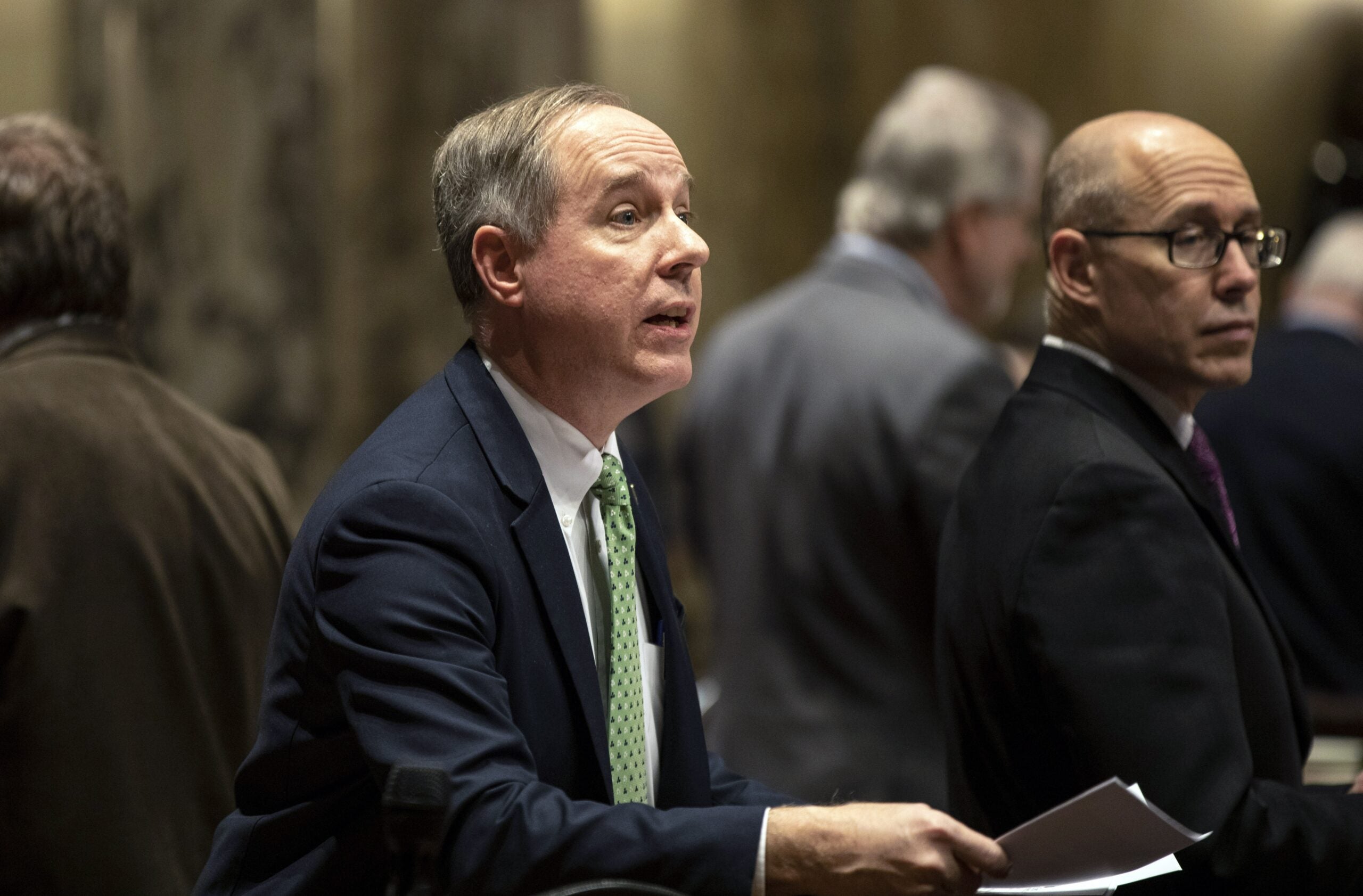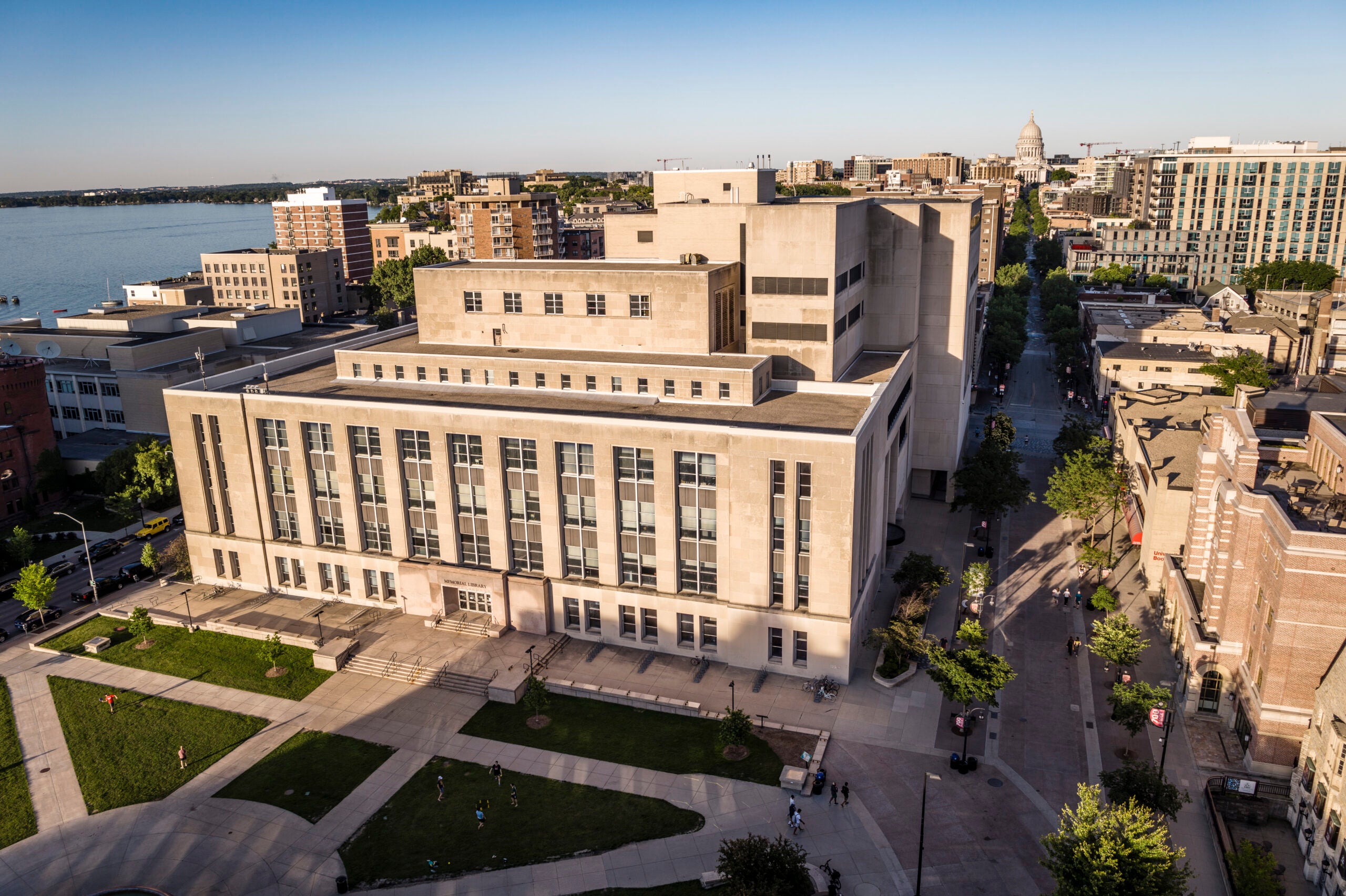Assembly Republicans unveiled a wide-ranging COVID-19 proposal Tuesday that would require state workers to go back to the office, force teachers back into classrooms, cut state aid for schools that don’t comply and potentially cut the salary of the cabinet secretary in charge of unemployment insurance claims.
The plan would also give the Legislature’s budget committee power over everything from how to distribute future COVID-19 funding from the federal government to how the state should distribute a COVID-19 vaccine.
It was the first legislation introduced by Wisconsin Republicans since they passed a bipartisan COVID-19 bill in April. Since then, they’ve regularly fought with Democratic Gov. Tony Evers over his statewide mask mandates and restrictions on capacity at bars and restaurants.
News with a little more humanity
WPR’s “Wisconsin Today” newsletter keeps you connected to the state you love without feeling overwhelmed. No paywall. No agenda. No corporate filter.
The Assembly GOP plan includes nothing about masks, but would ban state and local health orders that close or restrict capacity at some businesses without restricting others. It would also ban outright any restrictions on gatherings at churches.
“After working through ideas and discussions with Assembly GOP members, we have created a robust package to address the critical needs of our state,” said Assembly Speaker Robin Vos, R-Rochester.
Democrats had a decidedly different take.
“There are so many extremely politically divisive items in this legislation at a time when we need the opposite,” said Assembly Minority Leader Gordon Hintz, D-Oshkosh. “Not only do Wisconsin Republicans not want to respond to the COVID-19 pandemic, they want to put into law limits on local governments in their ability to respond in the way that works for their community. This bill is politically driven, undermines Governor Evers’ efforts to combat the virus, and ignores the reality our state is facing.”
The GOP plan comes two weeks after Evers introduced his own COVID-19 proposal that would spend more than $540 million in state funding on continued COVID-19 testing and other services that are currently being paid for by the federal government. Evers’ proposal would also let the state ban evictions, an idea Vos has suggested has no chance of passing in his chamber.
Among other provisions, which were spelled out at length in a memo from the nonpartisan Legislative Fiscal Bureau, the Assembly GOP plan would do the following when it comes to state workers and teachers:
- Require state government employees who have been working from home to resume working in-person beginning Jan 31. This requirement wouldn’t apply to University of Wisconsin System employees.
- Require teachers to be physically located in a school building when they are instructing students unless teachers provide schools with a doctor’s note. The state would withhold funding to districts that don’t comply.
- Require a two-thirds vote by local school boards to allow for virtual instruction. The board’s approval would only last for 14 days, meaning it would have to vote again every two weeks in order to continue virtual instruction.
- Require school boards to pay parents $371 to each student’s parent if they provide virtual instruction.
The Assembly GOP plan would also enact several restrictions on state and local governments when it comes to limiting crowds. It would:
- Restrict the power of local health officers from ordering the closure of a business unless it applies to all types of businesses. Similarly, a local health officer would be barred from restricting capacity at businesses unless those restrictions apply to all businesses.
- Prohibit state and local health departments from prohibiting gatherings in churches.
The Legislature’s budget committee, which is run by Republicans, would also gain several new powers. The proposal would:
- Give the Legislature’s budget committee the power to transfer up to $100 million from other parts of the budget to address the COVID-19 pandemic.
- Require the state Department of Health Services to submit a plan for distributing COVID-19 vaccines to the Legislature’s budget committee, and give the budget committee the power to block the plan.
- Give the Legislature’s budget committee oversight of federal COVID-19 funds. The governor had broad oversight over the state’s share of the first federal COVID-19 bill.
Other provisions aimed at reducing Wisconsin’s unemployment insurance backlog would:
- Require the state Department of Workforce Development (DWD) to staff a call center for 12 hours a day, seven days a week to provide support for unemployment Insurance claims.
- Allow the Legislature’s budget committee to reduce the salary of the DWD secretary by any amount if they don’t comply with requirements to reduce the unemployment insurance backlog.
The plan would spend, and in some cases, restrict state spending. It would:
- Require the governor to cut state funding to agencies by at least $300 million no later than Dec. 16.
- Set aside almost $9.2 million in state funding for grants to help schools purchase electronic devices, like laptops.
- Require the Wisconsin Economic Development Corp. to administer a grant program for businesses in the hospitality industry.
Other provisions would shield people from lawsuits related to COVID-19. They would:
- Protect health care workers, providers and contractors from civil lawsuits related to actions they took while responding to COVID-19.
- Protect schools from civil lawsuits connected to someone who dies due to the exposure or possible exposure to COVID-19 while on school grounds.
Also Tuesday, Republicans who run the state Senate unveiled their plan to deal with COVID-19, although it was far more limited than the one floated by Assembly Republicans.
The Senate GOP plan would require the state’s medical assistance fund to use a surplus to address issues related to COVID-19.
“Many Wisconsinites are feeling the effects of the pandemic,” said Senate Majority Leader Devin LeMahieu, R-Oostburg, in a written statement. “A transfer of this surplus would allow the executive branch, working in concert with the Legislature, to mobilize existing state funds to help those impacted and maintain critical activities in the state’s response to COVID-19 during this period of emergency.”
Asked about the GOP proposals, Evers’ office was noncommittal.
“Gov. Evers has repeatedly asked Republicans for their plan to respond to COVID-19 and remains ready and willing to work together on a proposal that will pass both houses with bipartisan support,” said Evers spokesperson Britt Cudaback. “It’s unfortunate that Republicans can’t even agree among themselves on a plan for our state’s response to this pandemic.”
Wisconsin Public Radio, © Copyright 2026, Board of Regents of the University of Wisconsin System and Wisconsin Educational Communications Board.







